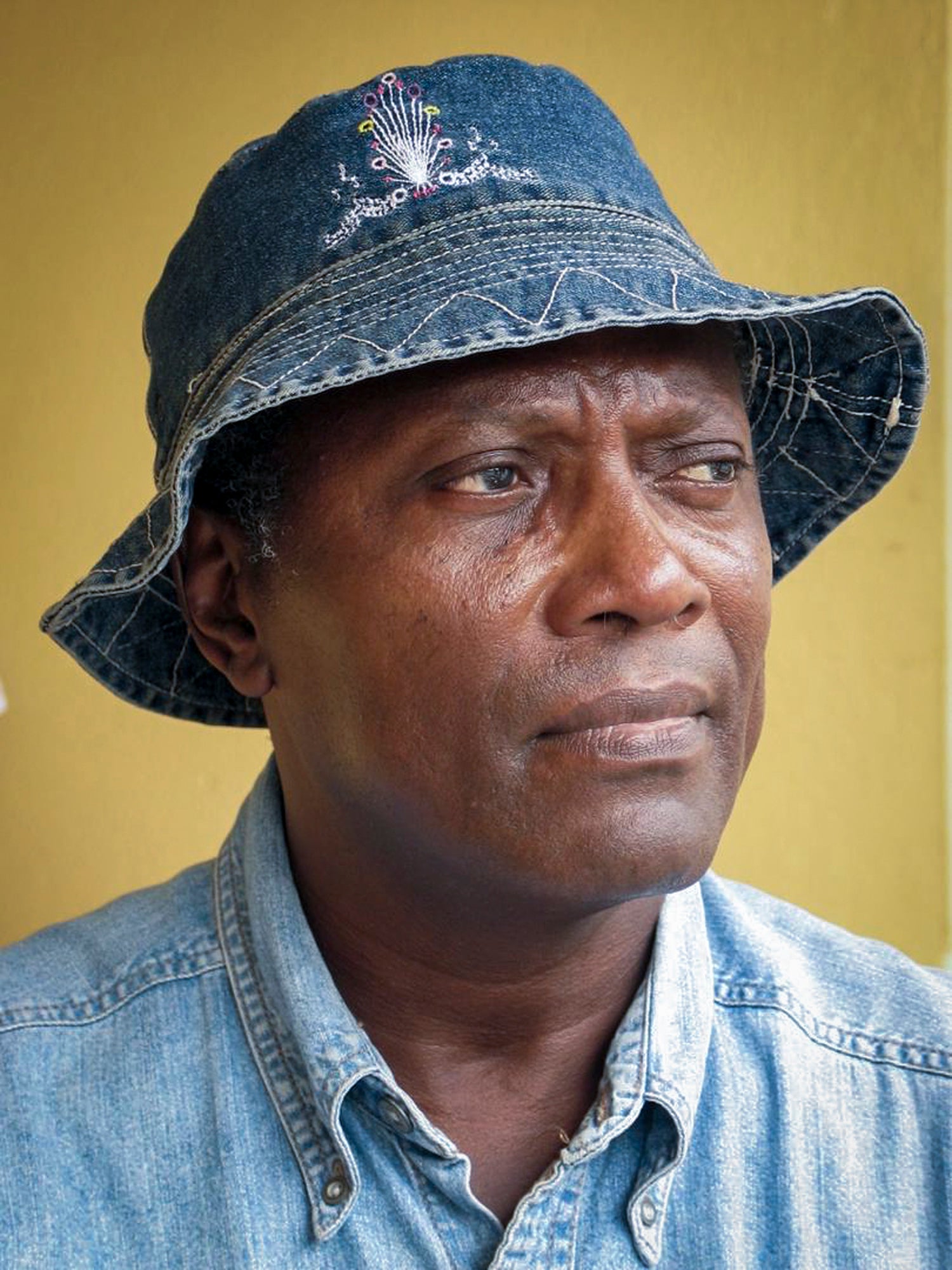Sierra Leone journalist Clarence Roy-Macaulay dies at 85
Journalist Clarence Roy-Macaulay, who covered Sierra Leone for The Associated Press for nearly four decades including the country’s brutal civil war and the Ebola epidemic that killed thousands there, has died

Your support helps us to tell the story
From reproductive rights to climate change to Big Tech, The Independent is on the ground when the story is developing. Whether it's investigating the financials of Elon Musk's pro-Trump PAC or producing our latest documentary, 'The A Word', which shines a light on the American women fighting for reproductive rights, we know how important it is to parse out the facts from the messaging.
At such a critical moment in US history, we need reporters on the ground. Your donation allows us to keep sending journalists to speak to both sides of the story.
The Independent is trusted by Americans across the entire political spectrum. And unlike many other quality news outlets, we choose not to lock Americans out of our reporting and analysis with paywalls. We believe quality journalism should be available to everyone, paid for by those who can afford it.
Your support makes all the difference.Journalist Clarence Roy-Macaulay, who in a distinguished career covered Sierra Leone for The Associated Press for nearly four decades from the country’s brutal civil war to the Ebola epidemic that killed thousands there, has died, his daughter said. He was 85.
Roy-Macaulay had been filing stories to the AP until about a week before his death on Wednesday, most recently contributing to a sports piece on Frances Tiafoe, the American tennis player of Sierra Leonean descent. He already had started sending in copy about preparations for the country’s upcoming election in 2023.
When war broke out in Sierra Leone in 1991, Roy-Macaulay already had been working for the AP for six years and refused to evacuate his country. Braving rebel attacks on the capital, Freetown, and years of harsh military regimes, Roy-Macaulay sent the world accurate reports chronicling his country’s turmoil, which lasted until 2002.
Tim Sullivan, who was the AP’s West Africa correspondent and then bureau chief during part of the war, recalled how Roy-Macaulay phoned in dictation relentlessly even as the Revolutionary United Front rebels were attacking Freetown.
“One evening I could hear heavy fighting in the background, clearly not too far away, and was about to suggest he get to shelter when he said in that unforgettable voice of his: ‘Just a moment. I need to get under the table,’” he said.
“I heard the phone scraping as he moved. Then he kept calmly reading his notes. I nearly shouted at him to get somewhere safer. But he said he was fine, and just calmly read on,” Sullivan recalled.
Roy-Macaulay also was there for the AP in times of tragedy, helping to repatriate the bodies of two AP colleagues who were killed while covering the fighting in Sierra Leone: Myles Tierney in 1999 and Miguel Gil Moreno de Mora the following year.
And Roy-Macaulay also traveled to neighboring Liberia, where he helped cover the war there that was intertwined with the one in Sierra Leone.
He again showed bravery in covering the 2014-2016 West African Ebola epidemic, which came at a time when there was no vaccine and no cure for the disease.
“URGENT! URGENT!! URGENT !!! Ebola outbreak - confirmed case of Ebola viral disease at government main referral Connaught Hospital in central Freetown,” he alerted editors in July 2014.
Roy-Macaulay covered the entire epidemic that followed, which left at least 3,956 people dead in Sierra Leone. In the years since, Roy-Macaulay's reporting also had shone a light on the long-term impacts of the tragic chapter in his country's history.
A 1965 graduate of London‘s Polytechnic School of Journalism, Roy-Macaulay joined the AP in 1985 after a long and successful career with Sierra Leonean newspapers and as head of the country’s national news service. He also previously held government postings in Sierra Leone’s embassies in Berlin and Moscow.
In 2006, he was awarded a Gramling scholarship award and traveled to AP headquarters in New York.
“I’m humble, but proud of winning AP’s award, which will motivate me to serve the AP mission better in the future, especially as Sierra Leone continues to recover from eleven years of a senseless and devastating civilian armed conflict,” Roy-Macaulay said at the time.
That same year he also received one of Sierra Leone’s highest civil honors from the country’s president when he was named an “Officer of the Order of the Rokel,” a special recognition named after a local river.
Roy-Macaulay is survived by his daughter, Clarice, whom he mentored in journalism and his 2-year-old granddaugher, Vesta. He was preceded in death last year by his wife, Miriam. His funeral is to be held later this month in Freetown.